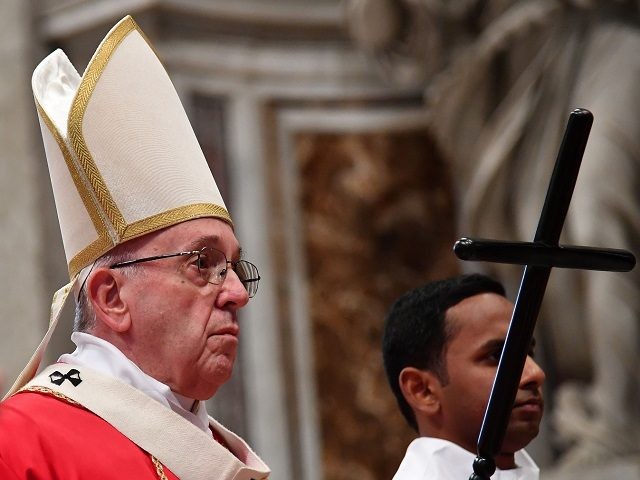Pope Francis denounced “negative reactions” to the phenomenon of mass migration Saturday, suggesting that more formation of conscience is needed to combat an anti-immigration mentality.
It is important, the Pope told members of the International Federation of Catholic Universities, “to reflect on the negative reactions, which are at times discriminatory and xenophobic, that the welcome of migrants is provoking in countries of ancient Christian tradition, in order to propose programs of conscience formation.”
The Pope met with the group following the conclusion of a 4-day international conference titled “Refugees and Migrants in a Globalized World: Responsibility and Responses from Universities,” which was held at the Jesuit-run Gregorian University in Rome.
One of the conference participants, Monica Attias, who works with the Community of Sant’Egidio, a Rome-based Catholic organization active in caring for immigrants and refugees, said that current European narrative on the migrant crisis, namely “that immigrants and refugees are destabilizing the countries” is all wrong.
“Public opinion neglects that the presence of migrants is a positive influence on the nation,” she said.
More than 2 million immigrants have steady jobs in Italy, a nation with double-digit unemployment, and migrants make up some 10 percent of the overall workforce.
There are 2.9 million unemployed people in Italy, or 11.1 percent of the workforce. Youth unemployment is far worse—as a measure of job-seekers between the ages of 15 and 24 years—and currently stands at 35.7 percent.
According to a report released last summer by the Centro Machiavelli, a socio-political thinktank, a plummeting birthrate and mass immigration are significantly altering Italian culture and demographics, with native Italians making up an increasingly small percentage of Italy’s overall population.
Italy’s fertility rate is less than half of what it was in 1964, the reported stated. It has dropped from 2.7 children per woman to just 1.5 children per woman currently, a figure well below the replacement level for zero population growth of roughly 2.1 children per woman.
As of the first of this year, Italy had over five million foreigners living as residents, a growth of a 25 percent relative to 2012 and a remarkable 270 percent over 2002. At that time, foreigners made up just 2.4 percent of the population while fifteen years later the figure has nearly trebled to 8.3 percent of the population.
If current trends continue, the report states, by 2065, first- and second-generation immigrants will exceed 22 million persons, or more than 40 percent of Italy’s total population.
In his address Saturday, Pope Francis said that the multiple contributions of migrants and refugees to their host societies “are definitely worthy of greater appreciation.”
The Pope invited Catholic universities to help their students undertake “a careful reading of the migration phenomenon, with a view to justice, shared global responsibility, and communion amid cultural diversity.”
In late September, Pope Francis Pope Francis launched a two-year campaign called “Share the Journey” aimed at provoking a “shift in thinking” regarding migration
The program proposes to educate people about the plight of migrants, and to encourage a more welcoming attitude toward them worldwide.
The campaign is spearheaded by the global Catholic charities network Caritas Internationalis, and was launched as a response to Pope Francis’ frequent summons for a “culture of encounter.”
Our world “faces not a migration crisis, but a crisis of global solidarity,” Caritas says on its website. “Be part of a worldwide campaign to reach out to migrants, change perceptions, open hearts and minds, and strengthen the bonds that unite us all.”
The project intends to shed light on both the challenges and effects of migration at every stage of the journey in order to provoke a “shift in thinking” on the issue.
Follow Thomas D. Williams on Twitter Follow @tdwilliamsrome

COMMENTS
Please let us know if you're having issues with commenting.